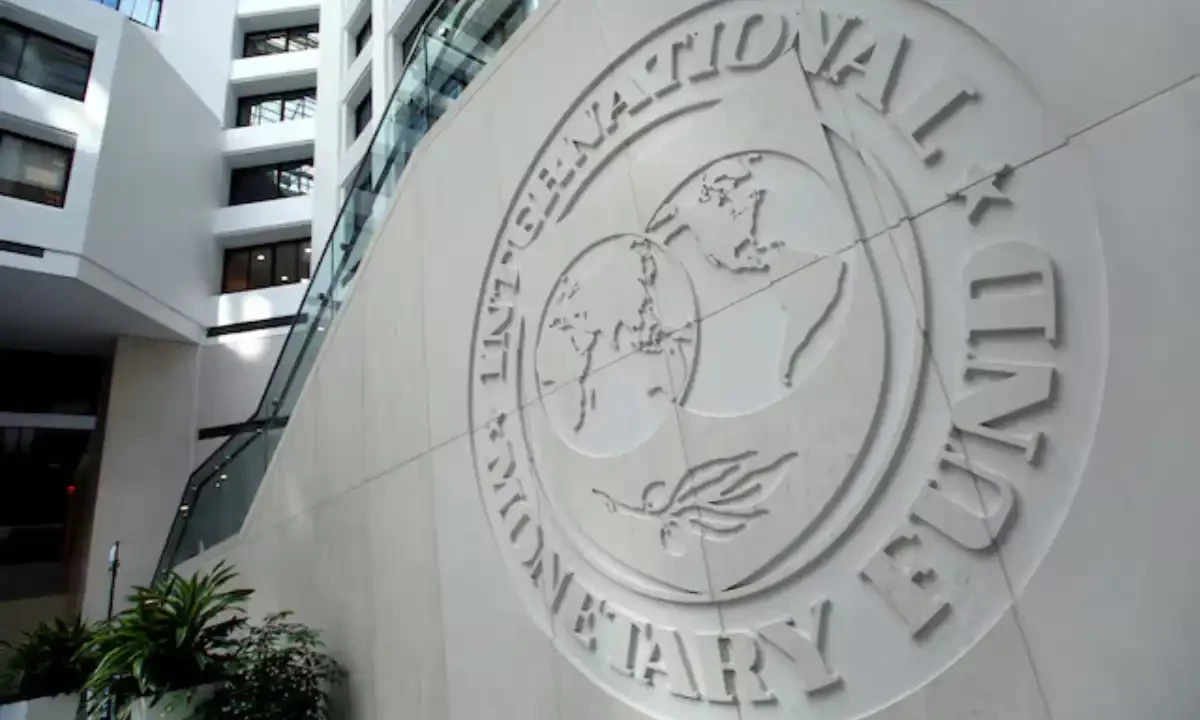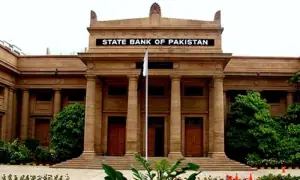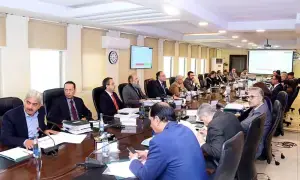Pakistan-IMF talks enter crucial phase, details sought on losses in SOEs
Pakistan’s negotiations with the International Monetary Fund (IMF) have entered a crucial stage, with the global lender seeking detailed information on financial losses incurred by state-owned enterprises (SOEs).
Further details on the Financial Monitoring Unit (FMU) have also been requested, according to sources familiar with the discussions.
Sources indicate that the IMF has raised questions about the latest intelligence received by the FMU, particularly regarding banking transaction reports and their role in revenue enhancement strategies.
Additionally, detailed data on non-banking transactions has been sought, with the IMF inquiring how such information is utilized within Pakistan’s financial system.
During the talks, the IMF also questioned the efficiency of invoice machines installed at chain outlets in Pakistan, though it expressed satisfaction with the Federal Board of Revenue’s (FBR) briefing on the matter.
The IMF’s economic review mission has formally commenced policy negotiations with Pakistan’s economic team at the Ministry of Finance.
The discussions, which are part of the $7 billion loan programme review, are being led by Federal Finance Minister Muhammad Aurangzeb on Pakistan’s side, while the IMF’s delegation is headed by Nathan Porter.
During the meeting, Aurangzeb briefed the IMF officials on the country’s economic situation.
Also, read this
IMF suggests Pakistan halt new construction near forests and waterways
PTI Senator Zafar believes judicial appointments will affect IMF talks
‘Nothing to hide’ in IMF mission’s Pakistan visit: Finance Minister Aurangzeb
Federal Board of Revenue (FBR) Chairman Rashid Langrial was also present.
The Ministry of Finance presented key economic indicators from July to February, including details on fiscal deficits, primary balances, provincial surpluses, and revenue collection.
Discussions also covered the revenue performance for the fiscal year up to January.
Presentations were given by the Economic Wing, Budget Wing, External Finance Wing, Regulations Wing, and Debt Management Department.
According to official briefings, Pakistan recorded a fiscal deficit of Rs1.537 trillion from July to December.
FBR Chairman Langrial provided insights into revenue collection, while board members participated in discussions with the IMF mission.
Earlier on Monday, the IMF mission formally launched talks with Pakistan under the $7 billion Extended Fund Facility (EFF) programme’s first review.
Sources in the Ministry of Finance confirmed that a nine-member IMF delegation, led by Nathan Porter, met with Pakistan’s economic team under the supervision of the Secretary of Finance.
The mission is expected to stay in Pakistan for nearly two weeks.
The negotiations are structured in two phases: technical discussions will take place first, followed by policy-level talks. Sources indicate that Pakistan’s budget for the fiscal year 2025-26, which is currently in its initial planning stages, will also be reviewed.
The IMF delegation will hold meetings with several government bodies, including the Ministry of Finance, Ministry of Energy, Planning Commission, State Bank of Pakistan (SBP), Federal Board of Revenue (FBR), Oil and Gas Regulatory Authority (OGRA), and National Electric Power Regulatory Authority (NEPRA).
Additionally, separate discussions will be held with representatives from Punjab, Sindh, Khyber Pakhtunkhwa, and Balochistan.
Sources reveal that the FBR chairman will meet with the IMF mission alongside senior officials, including the Member Policy, Member Operations, and Member Reforms.
Similarly, the Secretary of Power Division will lead another delegation, including OGRA and NEPRA officials, to discuss privatization plans and financial challenges in the power sector.
The mission arrived in Islamabad on Monday for its biannual review of the $7 billion bailout deal.
The IMF mission’s review meetings with the government will continue until March 15.
If negotiations conclude successfully, Pakistan will secure the second tranche of $1 billion, providing crucial financial support for the country’s economic stability.
For the latest news, follow us on Twitter @Aaj_Urdu. We are also on Facebook, Instagram and YouTube.


























Comments are closed on this story.